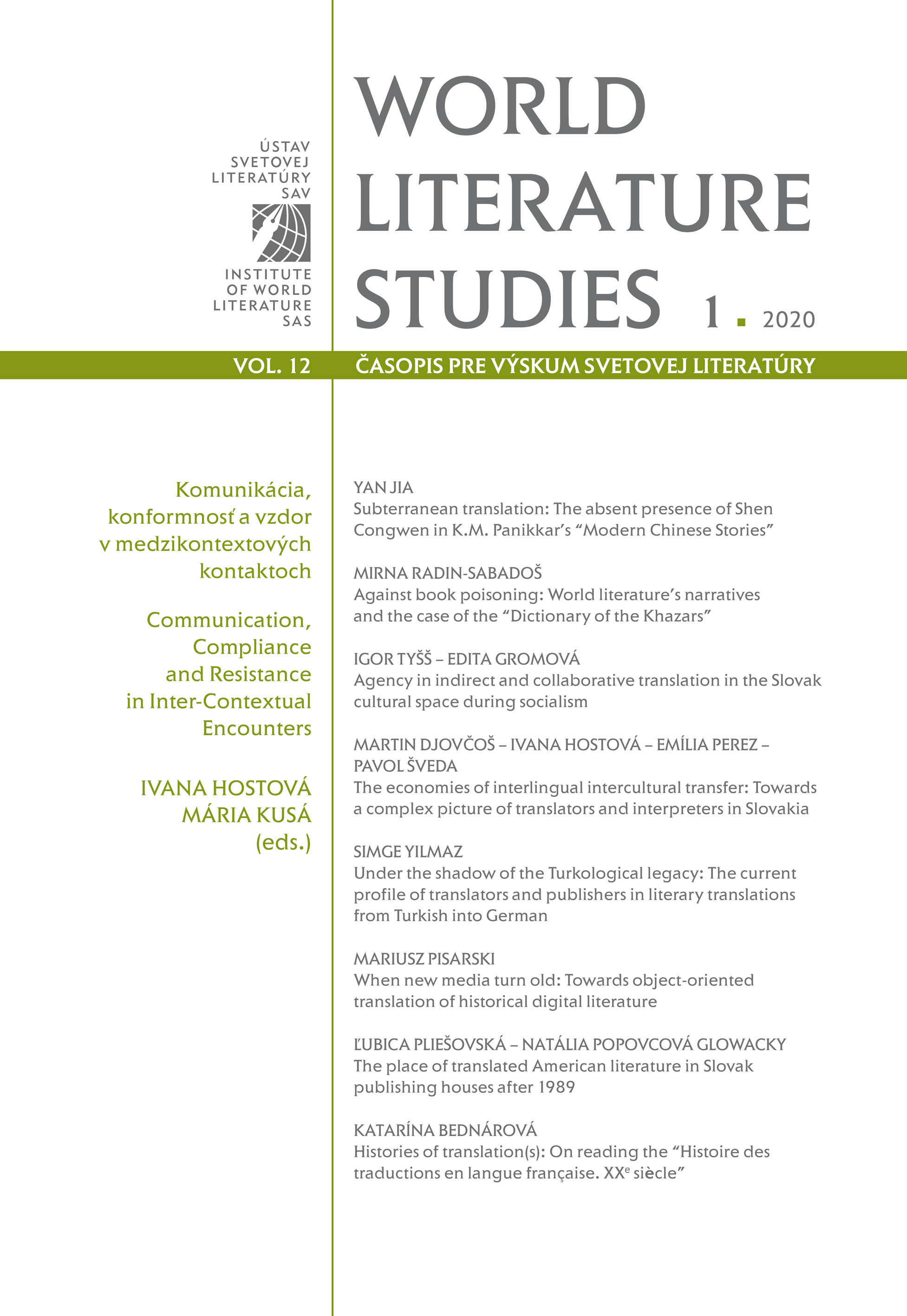When new media turn old: Towards object-oriented translation of historical digital literature
When new media turn old: Towards object-oriented translation of historical digital literature
Author(s): Mariusz PisarskiSubject(s): Language and Literature Studies, Studies of Literature, Polish Literature, Translation Studies
Published by: SAV - Slovenská akadémia vied - Ústav svetovej literatúry
Keywords: Digital literature; Object-oriented translation; Media; Translation; Hypertext; Object-oriented criticism; Electronic literature;
Summary/Abstract: This article is a reflection on the possible future of translating the classics of “born digital” literature in the light of new developments in preservation, restoration and dissemination of digital cultural heritage. Open “software libraries” initiatives of the Internet Archive and a growing popularity of media labs and computer museums make it easy for contemporary audiences to read the old hypertext fiction and animated poetry in their original context. This recreated retro computing experience calls for a new perspective on translating digital classics. Pixelated constellations of rectangles on Storyspace maps, the minimalist palettes of MacOS system sounds and colors – all these objects and artefacts, along with inherent metatexts, paratexts and behaviors, can contribute to “the laws of the original” (W. Benjamin). A viable path of translation opens up which allows for experiencing the source work the way it was conceived and presented to its first audience. Additionally, the experience-driven approach can be also used in editorial and publishing projects which rely on remediation and transmodal processes (from print to digital, from visual to aural). An exemplary project of a digital, educational edition of Adam Mickiewicz’s The Crimean Sonnets and its possible improvement by the experience-driven and object-oriented approach is analyzed.
Journal: World Literature Studies
- Issue Year: 12/2020
- Issue No: 1
- Page Range: 82-96
- Page Count: 15
- Language: English

